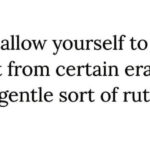Resentment – the (perceived) upside
According to Wikipedia, resentment is the experience of a negative emotion felt as a result of a real or imagined wrong, synonymous with anger or spite. All that's needed to warrant my resentment is for my expectations not be be met. Sometimes *you* don't know what I expect, because I've not told you. And I've not told you because:
1. I Shouldn't HAVE To Tell You – You Should Know (and obviously you don't, so my resentment is double-justified);
2. I don't know what my expectations are until you don't meet them.
Sometimes it doesn't take much to merit my resentment.
The really cool part is that it justifies any behavior I decide to mete out. I can treat you the same way that I don't like you treating me, act as if I'm better/holier/more special than you, collude with others – back-stab/gossip/slander, withhold the truth, intentionally lie, have affairs, break promises again and
again, resort to the silent treatment, withhold what I know you want, do what I know you don't want, blame you for all my failures while I take no responsibility for the quality of my own life, and the list goes on … and on. I reassure myself that I may be bad, but at least I'm not as bad as *you* – and I wouldn't have done this, if *you* hadn't started it.
The premise is that somehow, I'll feel better if I can knock you down a notch … or two. Unless my resentment is a big one, then I'm way more vindictive, wanting to get More than even.
At the corporate level, it's about power and greed – making sure I profit and you go out of business, whatever it takes to accomplish that. All justified. All guilt-free. All righteous.





Outstanding quest there. What occurred after? Thanks!
Outstanding quest there. What occurred after? Thanks!
It’s going to be end of mine day, but before end I am reading this enormous piece of writing to increase my know-how.